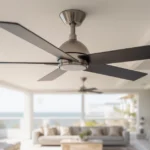When it comes to ensuring a reliable power supply during outages, generators are an invaluable asset. However, choosing between a portable and a standby generator can be a challenging decision for homeowners and businesses alike. Let’s explore six key factors that will help you make an informed decision between a portable and a standby generator.
1. Power Output and Capacity
One of the most critical factors to consider when choosing between a portable and standby generator is the power output and capacity. Portable generators typically range from 3,000 to 8,000 watts, while standby generators can provide anywhere from 5,000 to 20,000 watts or more. Super Fast Electric can assess your specific power requirements and recommend the most suitable generator type and size, ensuring you have reliable backup power tailored to your home’s needs.
2. Installation and Maintenance
Portable generators require minimal setup and are easily movable, but need manual operation each use. Standby generators demand professional installation with a transfer switch, offering automatic operation during outages. For expert assistance with generator installation and maintenance, our experienced technicians at Super Fast Electric can help select, install, and service the right generator system for your specific needs.
3. Fuel Type and Efficiency
Both portable and standby generators can run on various fuel types, each with its own advantages and considerations.
Consider the following points:
- Gasoline is readily available, easier to use but has a shorter shelf life.
- Propane has a longer shelf life and burns cleaner but can be difficult to fix on your own.
- Natural gas provides a continuous fuel supply but requires a gas line connection.
- Diesel powered generators have a longer shelf life but can be more expensive.
4. Cost Considerations
The cost difference between portable and standby generators can be substantial. Portable generators usually cost $500 to $2,500 by unit, while standby generators range from $2,000 to $6,000, excluding installations.
When evaluating costs, consider not just the initial purchase price but also:
- Installation fees (especially for standby generators)
- Fuel costs over time
- Maintenance expenses
- Potential increase in home value (for standby generators)
5. Noise Levels
Noise can be a significant factor, especially in residential areas. Portable generators typically range from 60 to 90 decibels. This can be disruptive to both you and your neighbors, particularly during extended use.
Standby generators’ noise levels depend on their sizes, the smallest generators (7kW-12kW) are usually 75-85 dB and the largest (126kW-250kW) are usually 85-103 dB.
6. Reliability and Convenience
Generator reliability and convenience vary based on type and user needs. Standby and portable generators each offer distinct advantages in power delivery, ease of use, and adaptability.
Standby generators:
- Automatic operation and whole-house power
- Extended run times and quiet performance
- Can power sensitive electronics and major appliances
- Higher cost and fixed installation
Portable generators:
- Flexible use and lower initial cost
- Manual operation and limited run time
- Suitable for essential appliances and outdoor use
- Noisier operation with exhaust management needs
By carefully evaluating these aspects, you can make an informed decision that ensures you have the right power solution for your home or business when you need it most. Super Fast Electric provides prompt, professional electrical services for both portable and standby generator installation, maintenance, and repair, ensuring your power backup system is reliably set up and properly integrated with your home’s electrical system. Contact us today to get powered up!




